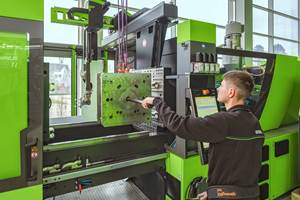The Unspoken Cues and Habits of a Group
The rules that break relationships at work.
Hidden rules, as defined by author and speaker Ruby Payne, are the unspoken rules of a group. Sports have hidden rules, as do religion, work, and economic class. I attended a Greek Orthodox wedding years ago. It was obvious which wedding guests were Greek Orthodox and which were not. In the workplace, examples of hidden rules include which parking spot and elevator you can use and whether to leave the coffee pot empty or fill it up again. Hidden rules can begin with anyone in an organization or company.
Knowing the hidden rules of an environment provides versatility and power within that environment. When you break a hidden rule, you can appear to be dumb, which could lead a supervisor to think you were a bad hiring mistake.
When I wrote the book Workplace Stability, I asked a group of entry-level, lower-wage employees to tell me what made them scratch their heads about management. Four themes emerged.
1. Meetings
In commenting on meetings, entry-level employees thought it wise to have a meeting, make a decision, and move on. They wondered why management has meetings, breaks out into subgroups, has more meetings, and then comes back again for another meeting.
When living in daily instability, like many of our lower-wage workers do, people live in the moment and solve problems all day long in a reactive way. Employees from this environment don’t live in a future-oriented world and don’t have the time or resources to prevent problems from occurring.
2. Budgets
The entry-level employees I talked with questioned why they earned only minimum wage, while the boardroom was stocked with expensive beverages for board-of-directors meetings.
The expectations around food and beverages are different for those living in instability, stability, and long-term stability. In instability, what matters is having enough. In stability, liking the food and beverage offerings is important. And in long-term stability, presentation is the most important factor.
3. Hierarchy
Entry-level employees ask, Why is it that I can’t ask the person that I know has the answers? Why do I always have to ask my supervisor or manager, who then takes it up the chain of command?
As managers who live in stability, we understand the hidden rules of hierarchy in the workplace. It is understood that this is what we do to be successful.
4. Emails
Lower-wage workers ask, Why can’t you just take my word? Why do you have to follow up our conversation with an email?
When people live in instability, relationships are a driving force. It is expected to take someone at their word and not feel the need to send a follow-up email.
The more hidden rules employees know, the more mutual respect will exist in the workplace. When hidden rules are broken with coworkers, loss of respect and broken relationships can occur. A list of hidden rules is given in the book Workplace Stability, available here.
About the Author: Ruth K. Weirich , MBA is an author, trainer, and management professional experienced in business operations efficiency and profitability. She is also a past president of aha! Process, an education and training company specializing in economic class issues. Contact: rkweirich@ahaprocess.com; ahaprocess.com.
Related Content
Mold-Change Time Targeted with Training, Technology
Engel is offering technology and training to molders to help them optimize their mold-changing process.
Read MoreGraduate Students Simulate Packaging Designs with Development Software
Software from Nova used in packaging engineering course.
Read MoreEducational Grant and Student Scholarships Open
The Society of Plastics Engineers’ Mold Technologies division is accepting applications for a $5,000 educational grant and a new $3,000 student scholarship honoring Glenn Beall.
Read MorePaulson Training Acquired
Certus, a technical skills training business and portfolio company of private equity firm Ridgemont Equity Partners, has acquired the plastics processing training business founded in 1981.
Read MoreRead Next
People 4.0 – How to Get Buy-In from Your Staff for Industry 4.0 Systems
Implementing a production monitoring system as the foundation of a ‘smart factory’ is about integrating people with new technology as much as it is about integrating machines and computers. Here are tips from a company that has gone through the process.
Read MoreFor PLASTICS' CEO Seaholm, NPE to Shine Light on Sustainability Successes
With advocacy, communication and sustainability as three main pillars, Seaholm leads a trade association to NPE that ‘is more active today than we have ever been.’
Read More















 (2).jpg;maxWidth=300;quality=90)





